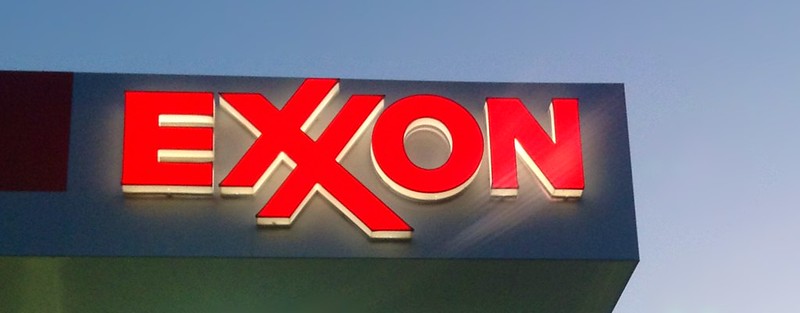ICYMI -- News Brief: FDX, CBRL, ADBE, XOM

Image Source: Exxon Mobil.
The dichotomy in the global economy remains. Restaurants such as Cracker Barrel continue to struggle mightily while those tied to e-commerce proliferation such as FedEx are thriving. Those with strong recurring revenue business models such as Adobe continue to do well, and we remain bearish on the outlook for the energy sector and point to the increased likelihood of Exxon Mobil cutting its payout.
By Brian Nelson, CFA
FedEx Reports a Blowout Quarter
On September 15, FedEx Corp (FDX) reported better-than-expected fiscal first-quarter 2021 results, with revenue, operating income, operating margin, net income and diluted earnings per share up substantially from the same period a year ago. The company noted that volume growth was robust in FedEx International Priority and U.S. domestic residential package services. We had been expecting comparatively weaker performance as a result of business closures across the globe due to COVID-19, and we underestimated the magnitude by which the pandemic has brought forth into calendar 2020 years of future e-commerce adoption. As we can certainly attest to, home package deliveries are soaring as consumers order online, and FedEx can largely be viewed as a somewhat demand-agnostic “play” on e-commerce proliferation. Though the company is not providing future guidance at this time, we expect to take a closer look at our valuation model and raise our fair value estimate on account of greater growth and earnings expectations for fiscal 2021 (especially heading into the holiday season) and for fiscal 2022--spilling over into better mid-cycle expectations, more generally.
Cracker Barrel Continues to Struggle
One of our favorite restaurant ideas prior to the COVID-19 pandemic continues to struggle. Cracker Barrel’s (CBRL) fiscal fourth-quarter 2020 results, report released September 15, revealed that comparable store restaurant sales fell more than 39% while comparable store retail sales fell more than 32% from the same quarter a year ago. People just aren’t eating out during the COVID-19 pandemic at the same rate as they used to. Even though Cracker Barrel noted that “substantially all dining rooms were open at varying levels of reduced capacity,” it’s going to be some time before things get back to “normal.” We fully expect Cracker Barrel to get back on track eventually, however, while delivering on an improved menu, increased off-premise sales, and a beer/wine program. Until we’re past the pandemic, performance for the company is going to remain ugly though. We’re keeping this one on investors’ radars, despite having removed it from the Dividend Growth Newsletter portfolio, because the company has demonstrated a capacity to offer investors a nice dividend yield during a more normalized economic environment. Current shareholders, including Bigliari Capital, aren’t too happy at the moment, however.
Adobe Delivers Best Third Quarter in Its History
Adobe (ADBE) reported excellent fiscal third-quarter 2020 results September 15. The company seems to be doing just about everything right. Its Digital Media segment’s sales advanced 19% thanks to solid growth in Creative sales and Document Cloud revenue. Cash flow from operations came in at a record $1.44 billion. Operating income advanced 25%, while diluted earnings per share increased more than 22% in the quarter. Management noted that it “delivered the best Q3 in (its) history in a challenging macroeconomic environment.” It’s hard not to like Adobe’s recurring business model and strong entrenched book of business. We plan to take a close look at our valuation model, but we don’t expect to make any material changes. The high end of our fair value estimate for Adobe is north of $500, implying nice upside. Adobe epitomizes the types of business models we like in this “new economy” ravaged by COVID-19.
Exxon Mobil’s Dividend on Watch for Cut
Exxon Mobil’s (XOM) Dividend Cushion ratio is concerning. We sat down with Valuentum’s Callum Turcan, and here is what he had to say about the risks to Exxon’s dividend at the moment:
Exxon Mobil's dividend obligations are not well covered by its expected near-term free cash flows, and the firm is leaning heavily on debt markets to fund those obligations. The oil majors at-large did not enter 2020 on strong financial footing after the previous downturn in raw energy resources prices from late-2014 to 2017 decimated their balance sheets (save for a few firms that cut their dividends and aggressively sold off assets to pay down debt, like ConocoPhilips [COP]). Large energy firms that have not yet cut their dividends are likely to do so soon short of a stellar rebound in raw energy resources pricing. Exxon Mobil's technical performance of late indicates that investors are steadily losing faith in its ability to navigate the pandemic-induced downturn in oil prices (and raw energy resources prices more broadly) without making some big changes.
We would not be surprised to see Exxon Mobil slash its payout. The market seems to already be pricing in a meaningful cut, too. It may only be a matter of time.
Oil & Gas - Independent: APA, CLR, COG, DVN, EOG, MRO, OXY, PXD
Oil & Gas - Major: BP, COP, CVX, RDS, TOT, XOM
0 Comments Posted Leave a comment